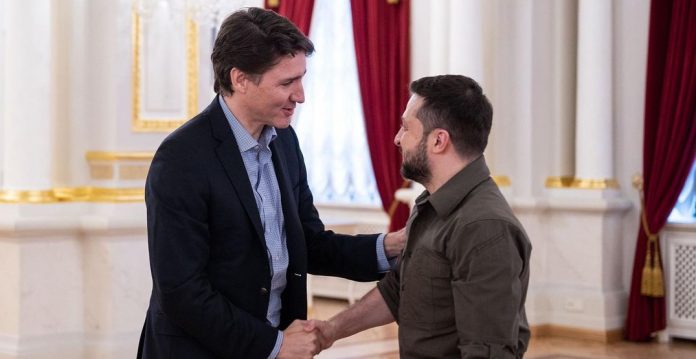Morteza Makki, in an interview with the website of the Strategic Council on Foreign Relations, referred to the meeting of G7 foreign ministers and its final statement and said: The foreign ministers pledged to strengthen Russia’s economic and political isolation and by bypassing the siege of Ukraine, release 25 million tons of grain left in the country’s ports. As the war escalates, it seems that the two sides are trying to use all the tools at their disposal to exert pressure and thwart the policies of the other side.
Abuse of basic human needs in Ukraine war
He pointed to the challenges posed by the Ukraine war over grain and oil shortages, especially in European countries, and the rising prices of those goods, adding: Russia has so far tried to make the most of energy and food tools in order to put pressure on Western countries and reduce their sanctions policies. In this war, both sides have resorted to using basic human needs as a tool, and the West is also trying to make the most of the opportunity to contain Russia by influencing its regional policies by imposing the toughest sanctions on Russia.
The expert on Europe affairs continued: The German foreign minister said that Russia was waging a “wheat war” against Western countries and was consciously trying to spread the Ukraine war around the world, especially in Africa, thereby undermining international unity. The foreign ministers of the seven countries have stressed that the Ukraine war has created one of the worst food and energy crises in the contemporary history.
Western countries trying to use public opinion of Asian, African countries
Referring to Western efforts to use Asian and African public opinion to align with Western anti-Russian policies, Makki said: The food crisis is now overshadowing the world, and food production and trade are being affected and disrupted by a number of factors, including drought and climate change, chemical fertilizer shortages, high oil prices and the Ukraine war. Under such circumstances, countries most at risk from the consequences of the Ukraine crisis, especially in terms of grain supply through that country, are generally poor African and especially Asian countries.
The analyst of Europe affairs added: In this context, European governments, in order to justify their actions against Russia in a moral and humane way, are trying to show that they are making efforts to mitigate the consequences of the Ukraine crisis, especially in relation to African countries that are dependent on Ukrainian and Russian grain.
Saying that Russia has so far failed to achieve its objectives on the ground and is now trying to block Ukraine’s access to the North Sea, he said: The North Sea route is the main route for exporting Ukrainian grain to the world, and ports in that region are generally built for this purpose. The Russians have succeeded in controlling those ports, and if they can achieve their objectives in Odessa, Russia will certainly be in control of grain exports.
Commenting on Russia’s efforts to impose its conditions on Western countries over concerns about global grain shortages, Makki said: Putin has announced that Russia will produce a total of 87 million tons this year, and the Ukrainian foreign minister has claimed that Russia, by confiscated wheat produced in Ukraine, has reached that figure.
According to the expert on Europe affairs, although the question will be how Russia wants to export the grain, as well as the 25 million grain ready for export from Ukraine, but energy and grain tools seem to be of great importance to the Russians, who are seeking to break the sanctions against themselves because of such global need. Westerners are actually trying to neutralize this tool.
Mackie added: When the Russians have not been able to achieve their objectives militarily, they are trying to increase the costs of the Ukraine war for European governments, and this increase in costs could make the pressure and protests on European governments more important given the rising inflation and declining opportunities for the European people. Certainly, the longer the war lasts, the more it will cost them.
Saying that European countries are trying to reduce the impact of the food tools used by Russia by using public opinion and bringing together Asian and African countries, he added: In addition, although European governments have so far been able to largely justify their public opinion about the shortage of energy and some goods and blame it on Russia’s policies in Ukraine, in the long run there will certainly be more opposition to this increase in recession and inflation in European countries.
Makki continued: In the coming days we will see parliamentary elections in France and the French far left has a great chance of winning parliamentary seats, this is an important challenge for the government of that country. The governments of other European countries are also in a precarious situation. At the same time, people in European countries have limited resilience to inflation. And when prospects of inflation is not clear, the Russians may hope that the Europeans will have to adjust their policies.
However, the analyst of Europe affairs said: But Europe seems to be making the most of it to contain Russia, weaken it and reduce the effectiveness of its policies, especially against European countries, and so far they have succeeded in meeting some of their energy needs through other ways.










0 Comments